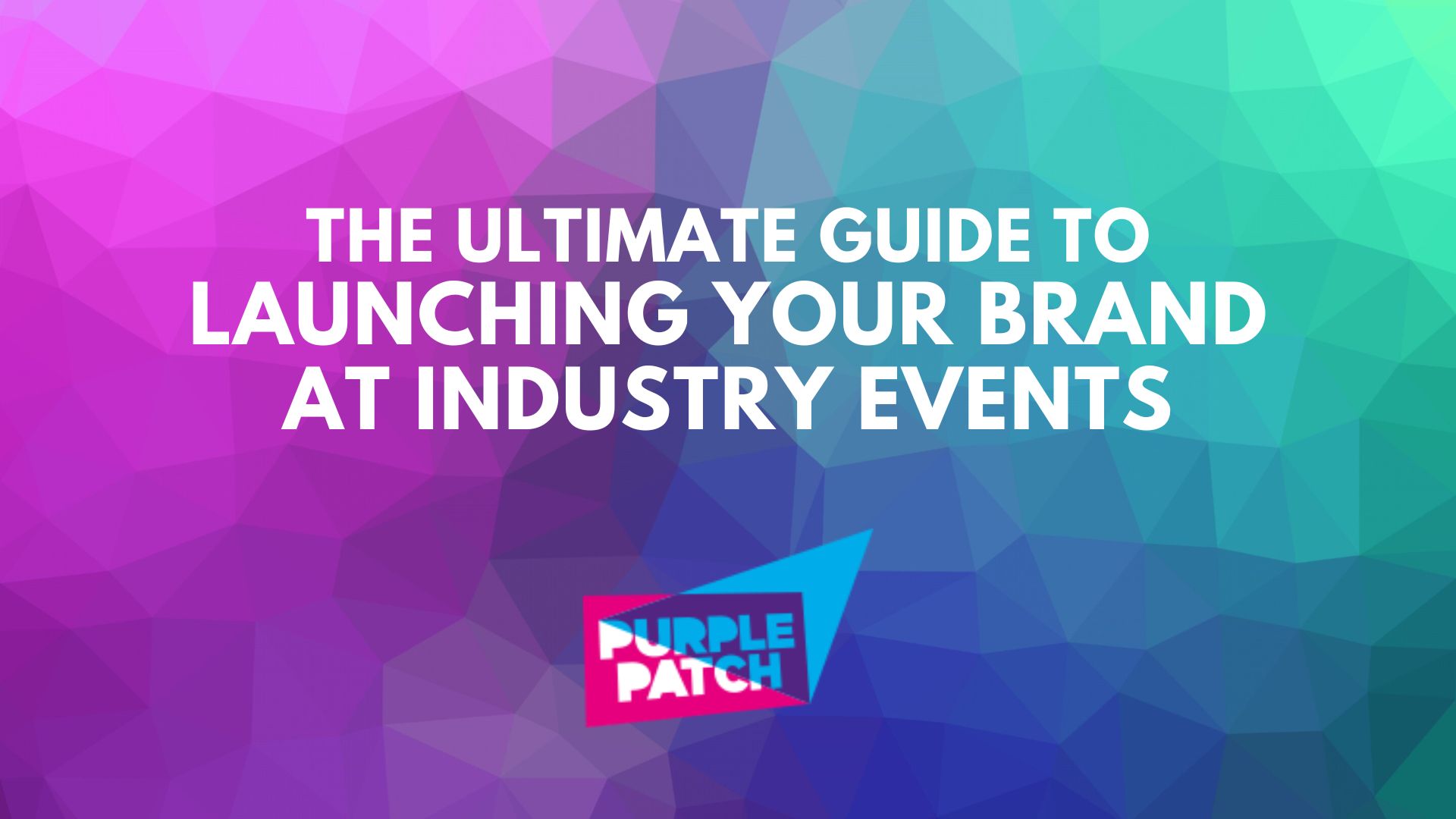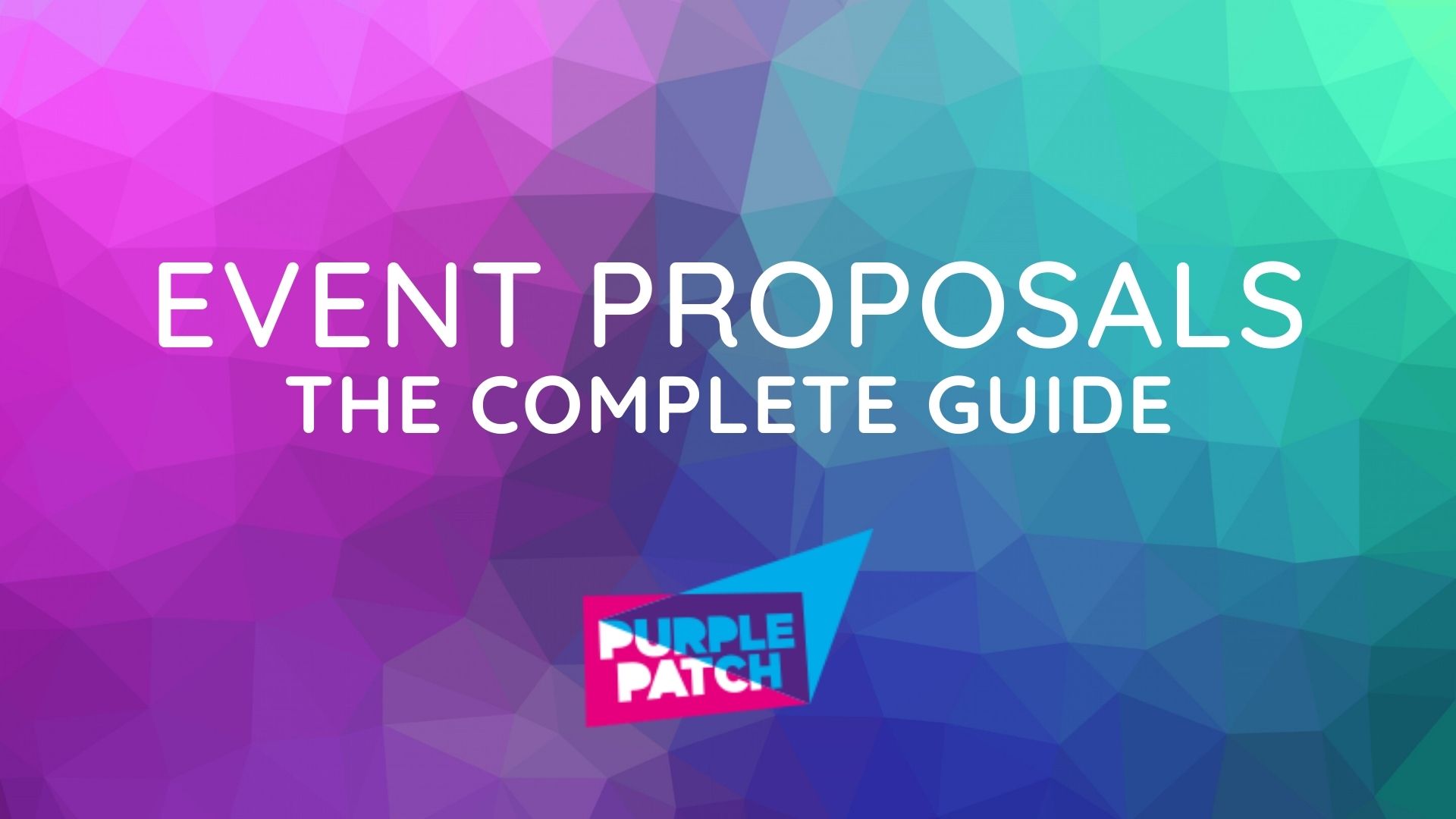In a dynamic and competitive business landscape, the first impressions can make or break a brand. Far beyond the conventional product launch, businesses are leveraging industry events to unveil not just offerings, but compelling brand narratives.
Launching your brand at an industry event can be a game-changer, providing a unique opportunity to make a lasting impression on your target audience. With that being said, in a sea of competitors, standing out requires careful planning and execution.
If you are a brand or a small business owner who wants to do a brand launch and make it big at an upcoming industry event or conference, you have come to the right page! In this article, we will guide you through the crucial steps you need to take, in order to ensure a successful brand launch at an industry event, and help you set the stage for long-term success. Not only that, we will also have a look at some success stories of small UK brands that have made it big by launching their brands at industry events. But before we dive in, let’s check out some of the top reasons why it’s a good idea to launch your brand at an industry event.
Why Launch Your Brand at an Industry Event?
Launching your brand at an industry event can offer a multitude of benefits, contributing to both short-term success and long-term growth. Here are some compelling reasons why it’s a good idea to launch your brand at an industry event:
- Targeted Audience: Industry events attract a concentrated audience of professionals, stakeholders, and potential customers who are already interested in your niche. This focused audience increases the likelihood of making meaningful connections and generating qualified leads.
- Networking Opportunities: Events provide an invaluable platform for networking with industry leaders, potential collaborators, and clients. Building relationships face-to-face can foster trust and open doors to future partnerships and business opportunities.
- Brand Exposure: Launching your brand at an industry event gives you immediate exposure to a relevant and influential audience. It’s a chance to showcase your unique value proposition, differentiate yourself from competitors, and create a lasting impression in the minds of attendees.
- Real-Time Feedback: Interacting directly with your audience allows you to receive real-time feedback on your products, services, and brand messaging. This feedback is invaluable for making immediate adjustments and improvements, ensuring your brand resonates effectively.
- Media Attention: Industry events often attract media coverage, providing an opportunity to get your brand featured in relevant publications, blogs, and social media. This additional exposure can significantly amplify your reach and enhance your brand’s credibility.
- Competitive Insights: Attending industry events allows you to observe and analyse your competitors. Understanding their strategies, successes, and challenges can provide valuable insights that help you position your brand more effectively within the market.
- Product Demonstrations: For product-based businesses, industry events provide an ideal setting for live demonstrations. Allowing potential customers to experience your product firsthand can create a memorable and positive impression, increasing the likelihood of conversions.
- Educational Opportunities: Many industry events feature workshops, seminars, and keynote speakers. Participating in these educational sessions can enhance your industry knowledge, keep you abreast of the latest trends, and position your brand as an authority in the field.
- Brand Validation: Being part of a respected industry event lends credibility to your brand. It signifies that your business is a serious player in the industry and can boost trust among potential customers, partners, and investors.
- Collaboration Potential: Industry events provide a platform for collaboration with other businesses, whether through partnerships, sponsorships, or joint ventures. These collaborations can extend your reach and open up new avenues for growth.
Launching your brand at an industry event is not just about making a one-time splash; it’s a strategic move that can set the tone for your brand’s success in the long run.
Successful Brand Launches at Industry Events
Now that we know how your brand can benefit from gaining early traction at industry events, let’s have a look at the success stories of some small UK brands that made it big by seamlessly blending creativity, authenticity, and strategic thinking to use industry events as their launching pad.
Monzo
Monzo, a UK-based digital bank, strategically launched its brand at fintech conferences. Instead of focusing solely on product launches, Monzo used these events to position itself as a disruptor in the banking industry, challenging traditional norms and engaging with a tech-savvy audience.
Higgidy
Higgidy, a small pie and quiche company, has effectively launched its brand at food events by focusing on its quirky and handmade identity. Their participation in food festivals and markets allows them to showcase their commitment to high-quality, homemade-style products, emphasising the personality behind the brand.
The Dandy Lab
The Dandy Lab, a small London-based menswear store, launched its innovative retail concept at tech showcases and fashion-tech events. By combining traditional retail with cutting-edge technology, The Dandy Lab effectively communicated its forward-thinking brand ethos to a tech-savvy audience.
Sipsmith
Sipsmith, a small craft distillery in London, successfully launched its artisanal gin during London Cocktail Week. The event, celebrating the city’s vibrant cocktail culture, provided an ideal setting for Sipsmith to introduce its unique gin to both consumers and industry professionals.
Crosstown Doughnuts
Crosstown Doughnuts, a small independent bakery, strategically introduced its gourmet doughnuts at various food festivals across the UK. By participating in events like the Foodies Festival and local markets, Crosstown gained exposure, engaged with food enthusiasts, and built a loyal customer base.
Brompton Bicycle
Brompton, renowned for its folding bicycles, strategically launched new models at The London Bike Show. The event’s cycling-focused audience allowed Brompton to engage with biking enthusiasts, demonstrate the functionality of their bikes, and create excitement around their product releases.
Percy Nobleman
Percy Nobleman, a small British grooming brand, chose barber shows and grooming expos to launch its men’s grooming products. These events provided a targeted audience of barbers and grooming enthusiasts, allowing Percy Nobleman to showcase its products and establish relationships within the industry.
Pickle Shack
Pickle Shack, a small catering company, successfully launched its brand by offering unique culinary experiences at food and drink festivals. Their focus on creating memorable dining moments aligns with the festival atmosphere, allowing them to showcase their brand’s creativity and culinary expertise.
MUD Jeans
MUD Jeans, a small sustainable fashion brand, strategically launched its eco-friendly denim collection during Fashion Revolution Week. The event, focusing on ethical and sustainable fashion, allowed MUD Jeans to align its brand values with conscious consumers and gain attention within the sustainable fashion community.
These examples illustrate how UK brands, across various industries, can strategically leverage local events to introduce their brand and new lines of products to their target audience, and establish a presence within their communities.
How to Launch a Brand At An Industry Event
Pre-Event Preparation
Setting Clear Objectives
Before diving into the logistics of your brand launch, it’s essential to define clear objectives. What do you aim to achieve at the event? Whether it’s generating leads, increasing brand awareness, or securing partnerships, your objectives should align with your overall business and marketing strategies.
Understanding the Event
Thorough research on the industry event is non-negotiable. Familiarise yourself with the event’s history, target audience, and themes. Analysing past events can provide valuable insights into what has worked for others and help you tailor your strategy accordingly.
Building a Strong Brand Identity
Craft a compelling brand story that resonates with your audience. Your brand identity should be more than just a logo – it should evoke emotions and convey the values that set your brand apart. Invest in visually appealing branding elements to make a memorable first impression.
Crafting a Strategic Event Plan
Booth Design and Setup
Your booth is the physical manifestation of your brand at the event. Plan a layout that encourages engagement and aligns with your brand message. Incorporate visuals and messaging that showcase your unique selling propositions.
Pre-Event Marketing
Generate buzz before the event by leveraging social media and other digital channels. Tease your brand launch, providing glimpses of what attendees can expect. Create a countdown or exclusive content to build anticipation.
Collaborations and Partnerships
Explore collaboration opportunities and sponsorships to enhance your brand’s visibility. Identify potential partners or influencers attending the event and establish connections. A well-thought-out partnership can significantly amplify your brand’s reach.
Engaging Attendees During the Event
Interactive Experiences
Make your booth a destination by incorporating interactive elements. Whether it’s a product demonstration, a virtual reality experience, or a hands-on activity, interactive features draw attendees in and leave a lasting impression. Ensure these experiences align with your brand message and provide value to visitors.
Networking Strategies
Effective networking is a cornerstone of a successful brand launch. Train your staff to initiate meaningful conversations and connect with attendees. Attend networking events associated with the industry gathering, and don’t underestimate the power of casual interactions. Sometimes, the most valuable connections happen outside formal settings.
Collecting and Leveraging Data
Implementing data collection strategies during the event is vital for post-event marketing. Use tools like lead capture forms, QR codes, or interactive surveys to gather valuable information about attendees. This data will be instrumental in personalising your follow-up and improving future event strategies.
Post-Event Follow-Up and Analysis
Lead Nurturing
The post-event period is as critical as the event itself. Develop a comprehensive follow-up plan to nurture the leads generated during the event. Personalise your communication based on the interactions attendees had with your brand. Share additional information, exclusive offers, or content that aligns with their interests.
Analysing Success Metrics
Evaluate the success of your brand launch by analysing key metrics. Look at lead conversion rates, social media engagement, and any direct feedback received. This analysis will provide insights into what worked well and areas that may need improvement for future events.
Adjusting Future Strategies
Identify lessons learned from your event experience and adjust your future strategies accordingly. Consider feedback from both attendees and your team. What worked seamlessly, and what could be enhanced? Continuous improvement is crucial for consistently successful brand launches at industry events.
Final Thoughts
Launching your brand successfully at an industry event requires a combination of strategic planning, engaging experiences, and thoughtful follow-up. As you embark on your own brand launch journey, remember that each event provides a unique opportunity to learn, grow, and refine your approach.
Ready to make your brand launch an extraordinary success? Our dedicated team of corporate event specialists at Purple Patch is ready to collaborate with you to ensure your brand launch leaves a lasting impression at the upcoming industry event. To learn more about our event planning services, contact us today!



